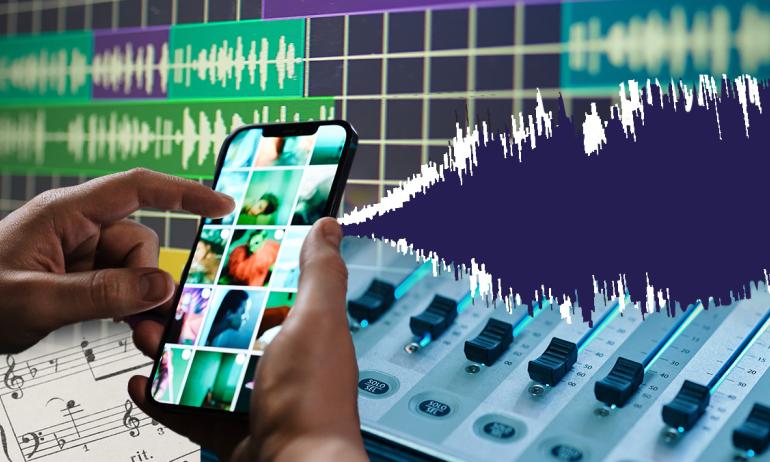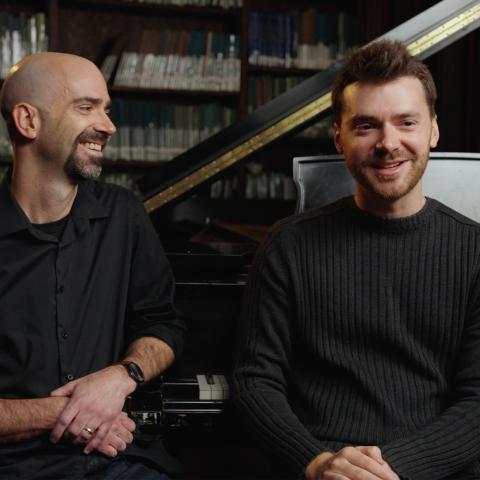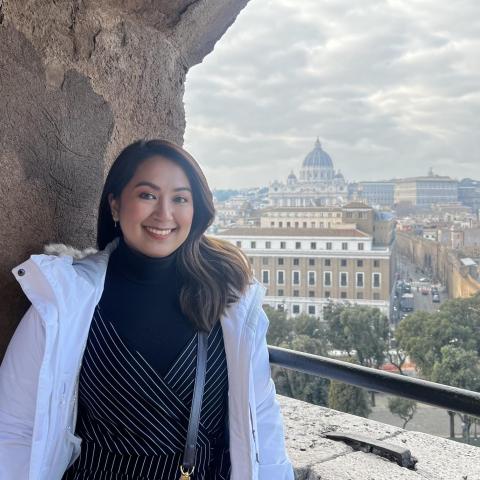Faculty Profile: Paul Schmeling
Pianist Paul Schmeling's music career has spanned the Birth of the Cool era to the present. Since his own studies at Berklee in 1959, he's witnessed a dramatic metamorphosis in the college and in music education as a whole. For decades, Berklee's Piano Department chair emeritus imparted the nuts and bolts of piano technique, harmony, and ear training primarily with traditional tools: the piano and a chalkboard. Unlike many of his generation who haven't embraced technology, Schmeling is thriving in an age where the PC is king. Berklee Keyboard Method, one of four courses he teaches at Berkleemusic.com, is a popular offering and was named America's best online college course for 2006 by the University Continuing Education Association.
"This sort of high-tech correspondence teaching I'm doing these days is amazing to me," says Schmeling, who still teaches in the brick-and-mortar Berklee environment two days a week. "I have students from all over the world studying with me." As a famous long-haired band from the '60s put it, it's been somewhat of a "long, strange trip" for Schmeling. A teacher since 1961, he remembers when Berklee had no competition in the jazz education field and was disparaged by conservatories for deigning to teach jazz. Yet now, when many schools offer jazz programs, Schmeling sees online coursework as an important new component in the evolution of music education.
"For people at other schools, folks who are too far away to study with us, or those who just want to improve their playing, reading, or arranging skills, these online classes are the wave of the future," says Schmeling. "As the technology improves, we keep updating our classes to fit people's musical needs. Unlike the correspondence courses of old when it took forever to hear back from your teacher, my students and I have instant communication."
Schmeling's computer conversion happened casually, almost by accident. As he began to think about retirement a few years ago, he met with Berklee's former executive vice president Gary Burton, who suggested that Schmeling consider teaching online courses to keep a hand in things. Intrigued, Schmeling began mulling over his potential contribution through Berkleemusic.com. "My idea was to help students who were planning on attending Berklee to reach the proper level in their playing and music theory knowledge. So we designed a 12-week course to bring those students up to speed."
To Schmeling's delight, his courses have taken off. He considers the online approach particularly effective for certain kinds of students. "They need to be self-motivated since they are not actually in a class where a teacher can lean on them," he says. There's a "what a world" chuckle in his voice when he describes the futuristic teaching method where a student e-mails him an MP3 of his keyboard playing for critique. Overall, Schmeling is honored by the reception his online courses have gotten. "One of the beauties of all this is that the people who take these courses are really interested in improving their reading and playing or they wouldn't bother."
Schmeling's students feel as positive about their online interaction as he does. One of his virtual pupils, Deborah Cochrane, is enthusiastic about Schmeling's help in advancing her keyboard skills. "Paul's guidance and understanding make the online experience very rewarding," Cochrane says. "He's always willing to give tips on our weekly assignments, and his knowledge and input are helping me to be a more confident musician. He keeps my thoughts ticking like a metronome."
In addition to Schmeling's multifaceted teaching, he is a highly regarded pianist who has backed such jazz artists as Art Farmer, Clark Terry, Carol Sloane, Slide Hampton, and Ernestine Anderson. During the 1980s, he released a handful of albums as a leader and has played on recordings with saxophonist Dick Johnson, trombonist Phil Wilson, singer Rebecca Parris, and the late Herb Pomeroy. (Schmeling was the trumpeter's favorite pianist.) Additionally, Schmeling has worked in Boston's theaters. "I played and conducted for the Boston run of You're a Good Man, Charlie Brown in 1968," Schmeling recalls. "That was a great experience. Amazingly, the gig lasted a full year-a good run for any musician. I bought my first house with what I made from that show. I also played with the touring company of Sesame Street doing the music of [composer] Joe Raposo."
When asked what the future holds for this award-winning pioneer of online music instruction, Schmeling has it pretty well figured out. "I think I'm nearing the end of my classroom teaching," he says. "I've been doing it for 47 years, so I believe I've pretty much said what needed to be said. But I'll certainly keep teaching online. I've come a long way from being a student here myself in the 1950s to teaching online students in South America or Japan. Teaching online takes up 20 hours a week, and that's just about right. The idea that I can get up in the morning, shuffle down the hallway in my slippers, and begin teaching suits me just fine at this point in my life."
Peter Gerstenzang '77 is a freelance musician, writer, and humorist. His articles have appeared in the New York Times, Rolling Stone, and other publications.




